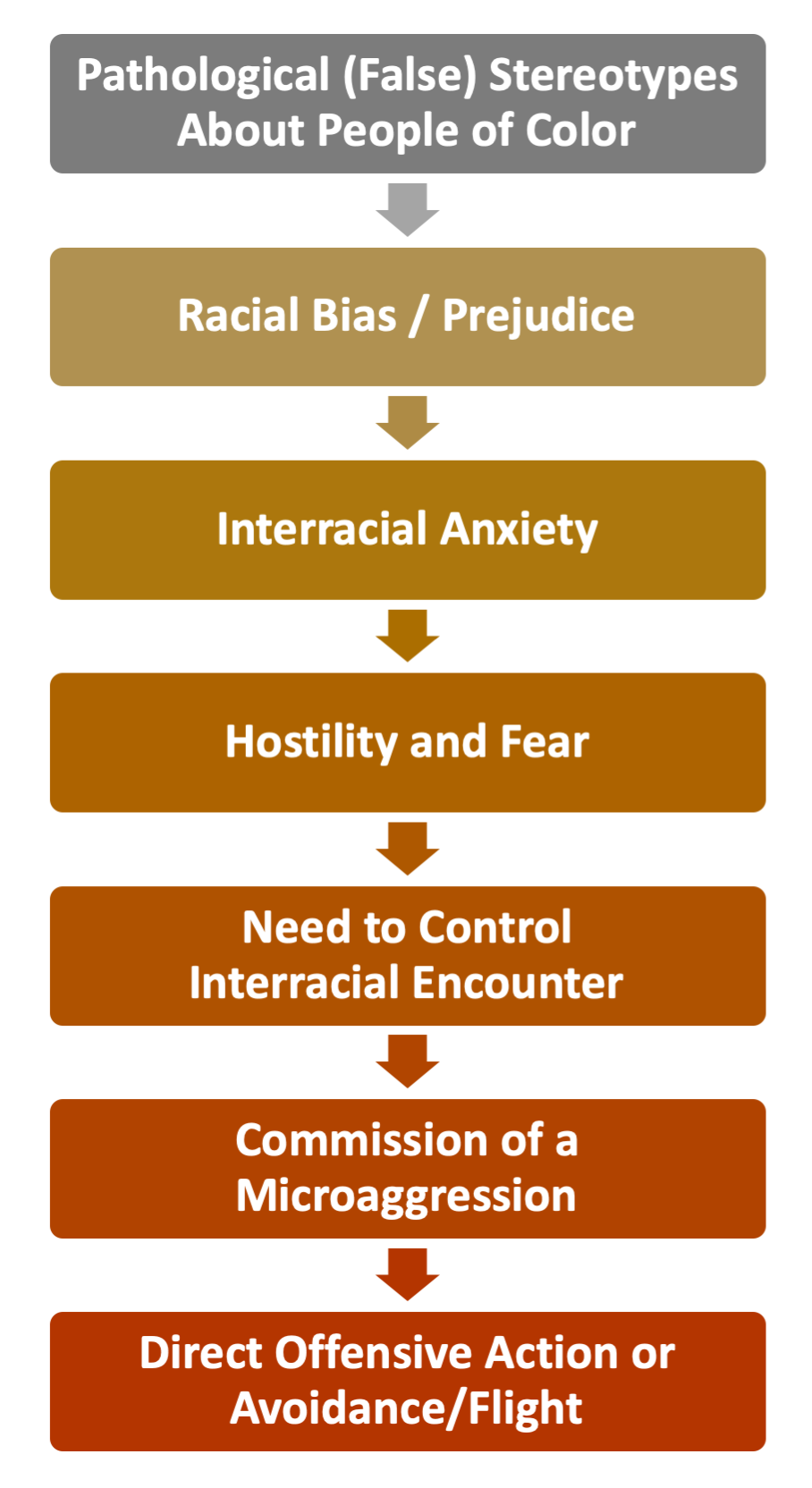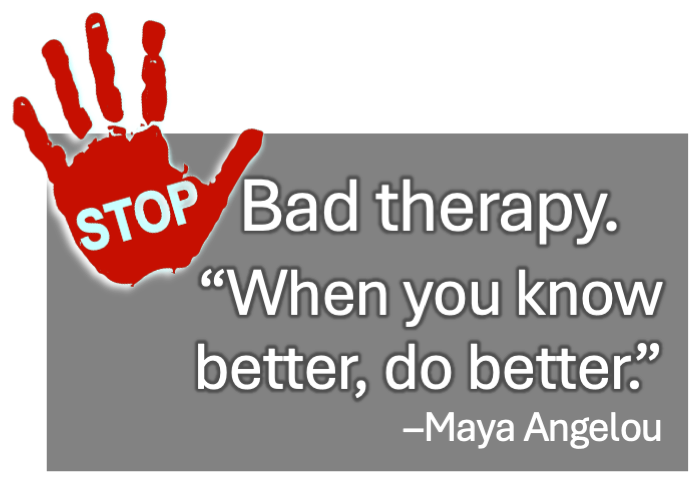Microaggressions Research
The Racial Microaggressions Process Model
Although it has been assumed that microaggressions are largely unintentional, the research provides a surprising counterpoint. Findings suggest that racial microaggressions are an assertion of dominance, motivated by underlying bias and a fear of relinquishing control. Those who are prone to commit microaggressions are higher in aggressive tendencies which is not explained by negative affect. As such, commission of racial microaggressions can be conceptualized as an anxious reaction triggered by exposure to racial material.

Microaggressions are not simply cultural missteps or racial faux pas, but a form of oppression that alleviates in-group anxieties by reinforcing the traditional power differential between groups, whether or not this was the conscious intention of the offender. As such, there is an underlying connection between the message embedded in the microaggression and its relationship to harmful stereotypes about the target that support existing inequitable power structures.
Williams, M. T. (2020). Microaggressions are a form of aggression. Behavior Therapy, 52(3), 709-719.

Understanding the Causes and Effects of Racial Microaggressions
Racial microaggressions can be defined as deniable acts of racism that reinforce false racial stereotypes, reinforce inequitable social norms and power differentials, and/or communicate exclusion. Microaggressions are fueled by racial biases. Here is some of the work our lab has conducted to understand and address this phenomenon.
- Development of a New Taxonomy of Racial Microaggressions
- Explicating the Aggression-Microaggression Connection
- The Racial Harmony Workshop (RHW) Intervention
In our lab, we explore the pervasive issue of racial microaggressions through innovative research aimed at understanding and addressing their correlates and impact. One of our hallmark projects, the Racial Harmony Workshop (RHW) intervention, demonstrated a tangible reduction in the commission of microaggressions among White students and a notable increase in ethnic identity affirmation among Black students. This evidence-based program underscores the potential of targeted educational approaches to foster greater cultural sensitivity and promote racial equity in diverse educational settings.
Our work also includes the development of a new taxonomy of microaggressions, a comprehensive framework that categorizes racial microaggressions based on an extensive review of existing literature. This taxonomy provides a more current understanding of these subtle, yet impactful, forms of discrimination, enabling researchers and practitioners to address them more effectively. Complementing this theoretical work, we have conducted in-depth focus group research with Black, Indigenous, and People of Color (BIPOC) across three universities, including uOttawa. These studies illuminate the shared experiences of microaggressions faced by BIPOC students, offering critical insights into the systemic barriers they navigate in academic environments.

Additionally, our work has challenged the assumption that microaggressions are purely unconscious and harmless. Our nationwide study reveals that microaggressions are connected to underlying aggression, emphasizing their role in perpetuating harm. Moreover, our international research highlights that racial microaggressions are not confined to North America but are a widespread issue across many Western nations. Together, these projects reflect our lab's commitment to advancing the understanding of microaggressions and driving change to create more inclusive, equitable communities.
